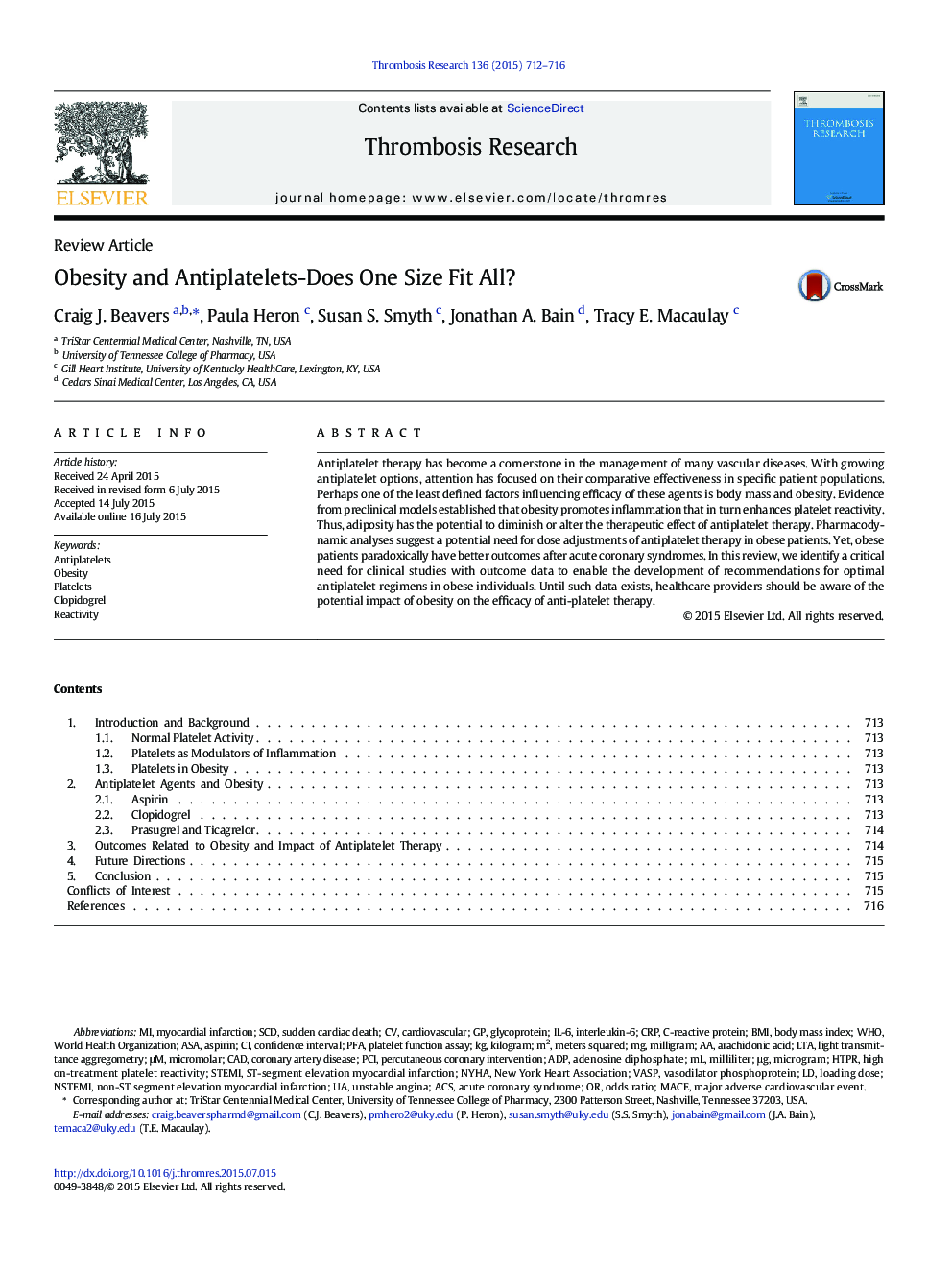| Article ID | Journal | Published Year | Pages | File Type |
|---|---|---|---|---|
| 6001439 | Thrombosis Research | 2015 | 5 Pages |
â¢Obesity has an effect to platelet physiologyâ¢Data suggest obesity can effect antiplatelet reactivityâ¢Larger scale clinical outcomes trials are needed to better understand the true impact of obesity of antiplatelet responsiveness
Antiplatelet therapy has become a cornerstone in the management of many vascular diseases. With growing antiplatelet options, attention has focused on their comparative effectiveness in specific patient populations. Perhaps one of the least defined factors influencing efficacy of these agents is body mass and obesity. Evidence from preclinical models established that obesity promotes inflammation that in turn enhances platelet reactivity. Thus, adiposity has the potential to diminish or alter the therapeutic effect of antiplatelet therapy. Pharmacodynamic analyses suggest a potential need for dose adjustments of antiplatelet therapy in obese patients. Yet, obese patients paradoxically have better outcomes after acute coronary syndromes. In this review, we identify a critical need for clinical studies with outcome data to enable the development of recommendations for optimal antiplatelet regimens in obese individuals. Until such data exists, healthcare providers should be aware of the potential impact of obesity on the efficacy of anti-platelet therapy.
